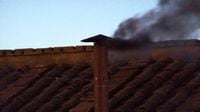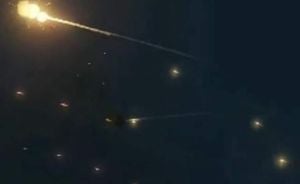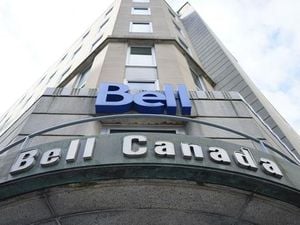On May 7, 2025, black smoke billowed from the chimney of the Sistine Chapel at 9 p.m. local time, signaling that no pope had been elected on the first ballot of the conclave convened to choose the next leader of the Catholic Church. This smoke appeared roughly four hours after 133 cardinals entered the chapel, took their solemn oaths of secrecy, and formally commenced the centuries-old process of selecting a successor to Pope Francis, who led the Church's 1.4 billion members worldwide.
As the evening unfolded, the atmosphere outside St. Peter's Square was electric. Thousands gathered to witness the historic event, watching the proceedings on massive video screens. When the doors of the Sistine Chapel closed, the crowd erupted in applause, marking the beginning of the secretive voting process. However, as the hours dragged on, some spectators grew restless and left, while others remained hopeful. "My hope is that cardinals will choose a man who can be a peacemaker and could reunify the church," said Gabriel Capry, a 27-year-old from London.
The conclave's proceedings are significant not only for the Catholic Church but also for the global community, as the process is steeped in tradition and secrecy. The cardinals, formally sequestered and cut off from the outside world, surrendered their cellphones, and communication signals around the Vatican were jammed to maintain confidentiality until a new pope is chosen. This year's conclave is particularly notable as it includes cardinals from 70 countries, reflecting a diverse representation that has been expanded under Pope Francis.
Of the 133 cardinal electors, 108 were appointed by Francis himself, who expanded the College of Cardinals beyond its traditional 120-member limit, selecting many from regions that had previously been overlooked, such as Mongolia, Sweden, and Tonga. This broadening of representation, especially from countries in the "global south," has added a layer of unpredictability to the selection process.
Many cardinals expressed concerns about the limited time they had to get acquainted with one another, which could complicate efforts to reach a consensus. Cardinal Mario Zenari, the Vatican's ambassador to Syria, captured the mood of anticipation, stating, "Wait and see, a little patience, wait and see." Meanwhile, Deacon Nicholas Nkoronko from Tanzania emphasized the need for a holy pope, saying, "Wherever the new pope comes from, whether it's Africa, Asia, America, what we need is we need a holy pope. We need a pope who will guide the Church and will be the pastor of the Church."
As the voting process concluded without a decision, the cardinals returned to their sequestered residences within the Vatican to rest before resuming the process on Thursday morning, May 8, 2025. The lack of a clear outcome on the first ballot underscores the complexities involved in electing a new leader for the Church, especially given the diverse backgrounds and perspectives of the cardinals involved.
Cardinal Giovanni Battista Re, the dean of the College of Cardinals, spoke before the conclave began, highlighting that today's world expects much from the Church regarding the safeguarding of fundamental human and spiritual values. As the cardinals prepare for another day of voting, the global audience remains keenly interested in the outcome, with many hoping for a leader who can address the challenges facing the Church and its followers.
While there is no set timeframe for a conclave—some lasting years and others only hours—the modern era has brought international attention to the proceedings, with the events livestreamed for a global audience. This accessibility contrasts sharply with historical practices, where only those physically present at the Vatican could witness the unfolding drama.
As the cardinals gather once again on Thursday morning, the anticipation builds. The world watches closely, eager to see who will emerge as the 267th pope and what direction they will lead the Church in the coming years. The significance of this moment cannot be understated, as the choices made in the coming days will shape the future of Catholicism and its role in a rapidly changing world.
In the meantime, the black smoke has become a symbol of the ongoing deliberations, a reminder that the path to consensus is often fraught with challenges. As the cardinals prepare for another day of voting, the hope remains that they will soon agree on a leader who can unite the Church and inspire its followers across the globe.




